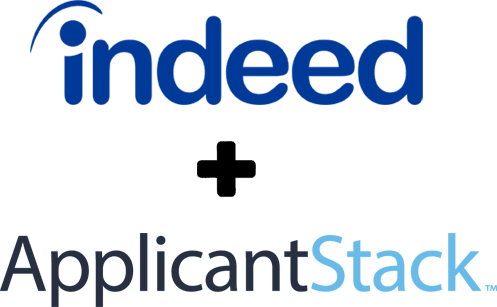Struggling to find the right person for an open position using your old recruitment methods? It’s time to consider gig workers.
The standard “9 to 5” work setup is no longer the norm. Before the pandemic, 36% of the U.S. workforce – that’s 57.3 million people – was part of the gig economy, per Statista. By 2024, that number is expected to increase to over half of all workers – almost 77 million people. With the labor market continuing to favor job seekers, many more people who got a taste of flexibility and independence are recognizing that their skills and experience might be better suited to gig work. And, your current recruitment strategy needs to reflect that.
So, what exactly is a gig worker, and why should you consider this growing pool of talent in your recruitment strategy? Let’s take a look.
What Is a Gig Worker?
Imagine an individual who opts for flexibility and control over their career by taking on short-term projects or tasks, rather than committing to a full-time position. This is the essence of a gig worker. Often referred to as independent contractors or freelancers, these professionals are increasingly making their presence felt across various industries.
People choose gig work for a variety of reasons. Some crave the independence to juggle work and personal commitments, while others view it as a chance to dip their toes into different fields or refine their specialties without taking on irrelevant roles or responsibilities.
Gig workers earn their income based on the projects they complete or services they render, without the specific perks that come with full-time employment. Some examples include freelance writers, rideshare drivers or consultants hired on a per-project basis. Gig workers generally don’t qualify for benefits reserved for full-time employees, such as access to an employer-sponsored health insurance plan or paid time off. But those who choose this type of work may seek other benefits.
The Gig Economy vs. Traditional Employment
The gig economy operates in stark contrast to traditional employment models. A gig economy worker isn’t an employee of the companies for which they provide their services. Instead, they’re hired for specific tasks and paid accordingly, often at rates they set themselves. While many will choose the gig life full-time, some decide to do freelance work alongside their regular employment as a source of extra income.
Employees, on the other hand, have a formal relationship with a company, receiving a salary, benefits and traditional job security. An independent contractor falls somewhere in between, hired for set projects and possibly receiving some benefits. The main distinction between employees and contract workers lies in their level of autonomy and control over their job, as well as their exception from labor law protections and other employee rights.
While some gig workers appreciate the freedom that comes with being their own boss, others might yearn for the stability and advantages that traditional employment affords. Understanding these differences is crucial when considering gig economy workers as part of your recruitment strategy.
Why “Gig” Work Appeals To Many
The gig economy offers numerous perks for both workers and employers. Workers often enjoy higher pay rates and better work-life balance, as they can decide when and how much they work. Meanwhile, employers can benefit from:
- A pool of expert talent for specific projects without long-term commitments
- Cost savings from eliminating employee benefits, office space and payroll taxes
- None of the training or education necessary for full-time employees
- The ability to tap into talent worldwide, potentially increasing diversity and round-the-clock availability
Of course, the gig economy isn’t without its drawbacks. Job security and benefits can be hard to come by. However, many gig workers find that the uncapped income, flexibility and professional growth outweigh these concerns. While it means developing a continuously revolving recruitment process and comes with its own separate set of costs, recruiters may find that a mix of gig and employed workers can be a boon to their company.
Adapting Your Recruitment Strategy for the Temporary Workforce
It’s essential to adapt your recruitment strategy to effectively find and manage gig workers as the gig economy continues to expand. To help you navigate this evolving landscape, here are some actionable best practices for hiring freelancers:
- Leverage digital platforms: Utilize job boards, social media and any gig platform like Freelancer, Upwork and Fiverr to reach a broader audience and connect with potential gig workers.
- Do your research: Thoroughly vet any freelance worker before hiring them. To reduce the likelihood of attracting scammers, look for workers who have an excellent reputation and a proven track record of success (real reviews from real clients).
- Offer competitive compensation: Analyze industry standards and offer competitive pay rates to attract top talent.
- Provide clear project guidelines: Make sure to outline the scope, goals and requirements to minimize misunderstandings and provide a smooth working relationship.
- Be transparent about expectations: Clearly communicate project range, deadlines and compensation to ensure both parties understand their responsibilities.
- Provide consistent work: Gig workers appreciate clients who can offer a steady, reliable supply of projects, building a commitment to a long-term working relationship.
- Streamline the hiring process: Use tools like ApplicantStack to manage and track your gig recruitment efforts, making it easier to find, hire and onboard gig workers.
- Maintain open communication: Arrange regular check-ins and establish feedback channels to keep gig workers engaged and ensure their needs are met.
- Offer skill development opportunities: While gig workers may not seek advancement within your company, they often appreciate the chance to learn new skills and refine their expertise. Consider offering cross-training or workshops related to their field to help them grow professionally.
- Build a strong reputation: Gig workers are more likely to work with clients who have a solid standing for treating freelancers fairly and valuing their contributions. Encourage reviews and testimonials from satisfied gig workers to establish trust with potential hires.
Incorporating gig workers into your talent pool can be a strategic move for your business. ApplicantStack can play a crucial role in streamlining your recruitment process and effectively managing your relationships with gig workers. With its intuitive tools and features, ApplicantStack enables you to recruit with ease, ensuring you make the most of the opportunities that gig economy work has to offer.
Start your ApplicantStack free trial today and find your next hire.
- Understanding Contract-To-Hire and How It Works - April 23, 2024
- Should Your Job Listings Include Salary Information? - April 19, 2024
- ApplicantStack Achieves Gold Partnership Status with Indeed - April 16, 2024











